What if I told you there’s a humble herb packed with soothing potential, just waiting to boost your well-being? Meet lemon balm, a member of the mint family that’s been cherished since the Middle Ages. This lemon-scented herb is celebrated for its calming effects on the nervous system and its antiviral properties, making it a fascinating subject for health studies and herbal medicine enthusiasts alike.
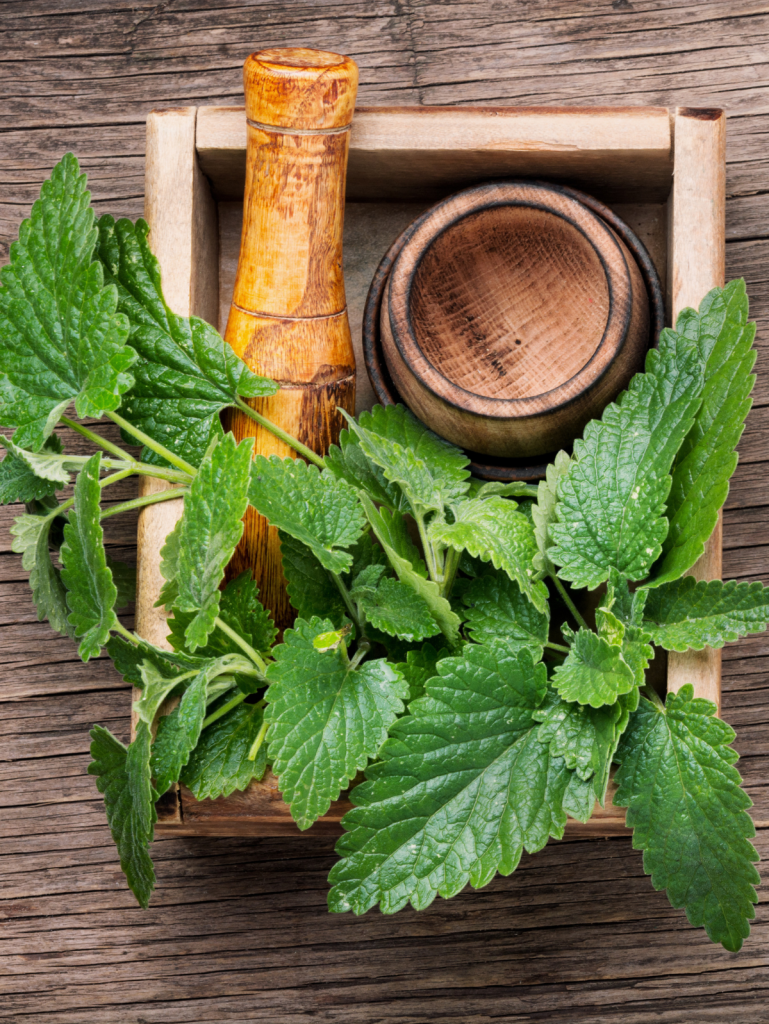
From easing cold sores with lemon balm cream to enhancing cognitive function and even offering a gentle nudge toward better sleep quality, the benefits of lemon balm aren’t just old tales but are backed by scientific evidence. Whether steeped in lemon balm tea, inhaled as lemon balm oil, or taken as a lemon balm supplement, this versatile herb can fit seamlessly into everyday life. But, like with any herbal product, it’s key to talk to your healthcare provider to avoid adverse effects.
Rich in compounds like rosmarinic and caffeic acids, lemon balm extract isn’t just for the apothecary. Its uses range from calming PMS symptoms to adding a special zing in ice cream or a fresh twist to fish dishes. Whether you’re a home gardener cultivating lemon balm plants or someone curious about natural remedies, exploring this medicinal herb might just open up a world of wellness wonders.
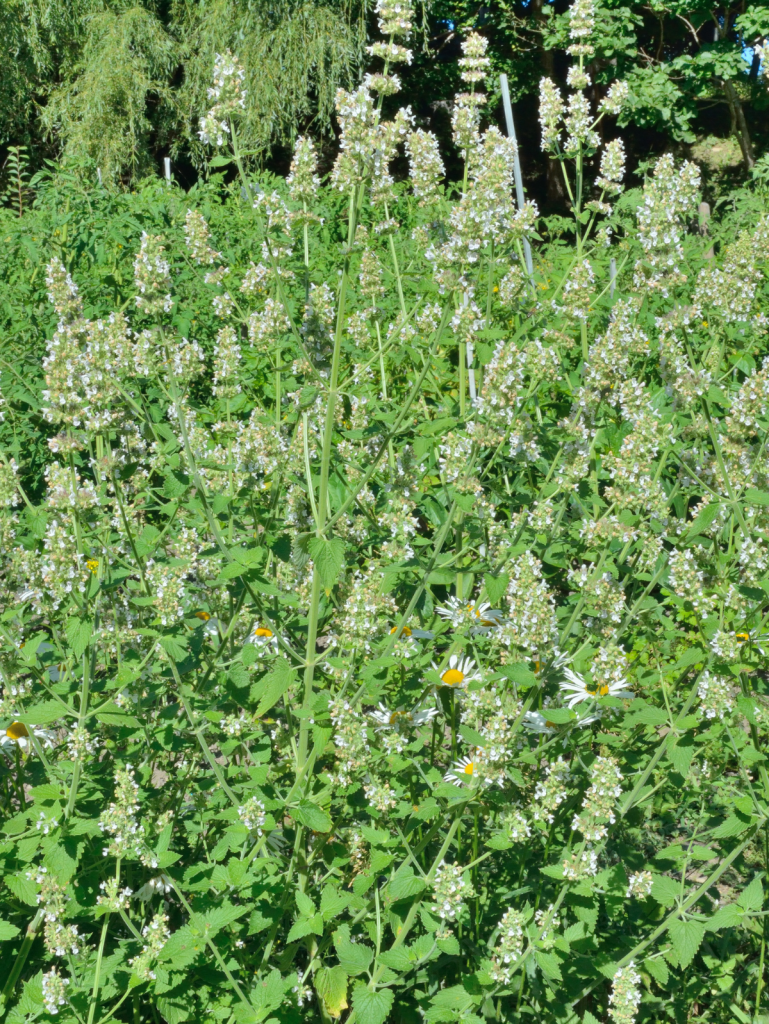
What is Lemon Balm?
Lemon Balm, or Melissa officinalis L., is not just your garden variety plant. It’s a fascinating member of the mint family that boasts a delightful lemony scent, making it a favorite among herbal enthusiasts and home gardeners alike. This lemon-scented herb has been cherished for centuries for its myriad uses in traditional medicine, and it’s often dubbed as a medicinal plant due to its impressive list of benefits. But what exactly makes lemon balm so special? Let’s break it down.
A Brief History
Lemon balm’s history stretches back to the Middle Ages, where it was used as an herbal remedy to improve sleep quality and reduce anxiety. The Greeks, who named it “melissa” after the word for honey bee, knew of its charm too. Why honey bee? Because lemon balm is a honey plant, loved by these busy pollinators.
Physical Characteristics
Sporting small white flowers and heart-shaped leaves, lemon balm is a sight to behold in any garden. Its fresh herbaceous aroma is both invigorating and soothing, a true reflection of its dual role as a calming herb and a digestive aid. Many call it a carminative herb because of its ability to relieve abdominal pain and promote digestion.
Origins and Spread
Originally from Southern Europe and Central Asia, lemon balm has made its way across continents, becoming a staple in gardens and kitchens worldwide, including the United States. Its versatility extends from being a star ingredient in lemon balm tea to a popular choice in fish dishes and even ice cream! Yes, you heard that right, ice cream!
Modern Uses
Today, lemon balm supplements, lemon balm oil, and lemon balm extract are popular in the field of alternative medicine. They are praised for potential antiviral properties, particularly against the herpes virus. In fact, some studies suggest its effects on cold sores caused by the herpes simplex virus may be promising. It’s not just skin deep – lemon balm is also linked to improved cognitive function and reduced pms symptoms, among other health conditions.
Cautionary Note
Even natural remedies can have side effects, and lemon balm is no exception. While generally safe, higher doses might cause adverse effects like nausea or dizziness. Hence, it’s always wise to consult with a healthcare provider before trying new herbal products.
So, the next time you stumble upon lemon balm in your garden, remember, it’s more than just a pretty face! Whether in herbal teas, as part of an herbal supplement, or in your favorite recipe, lemon balm’s ability to enhance wellness is truly remarkable.
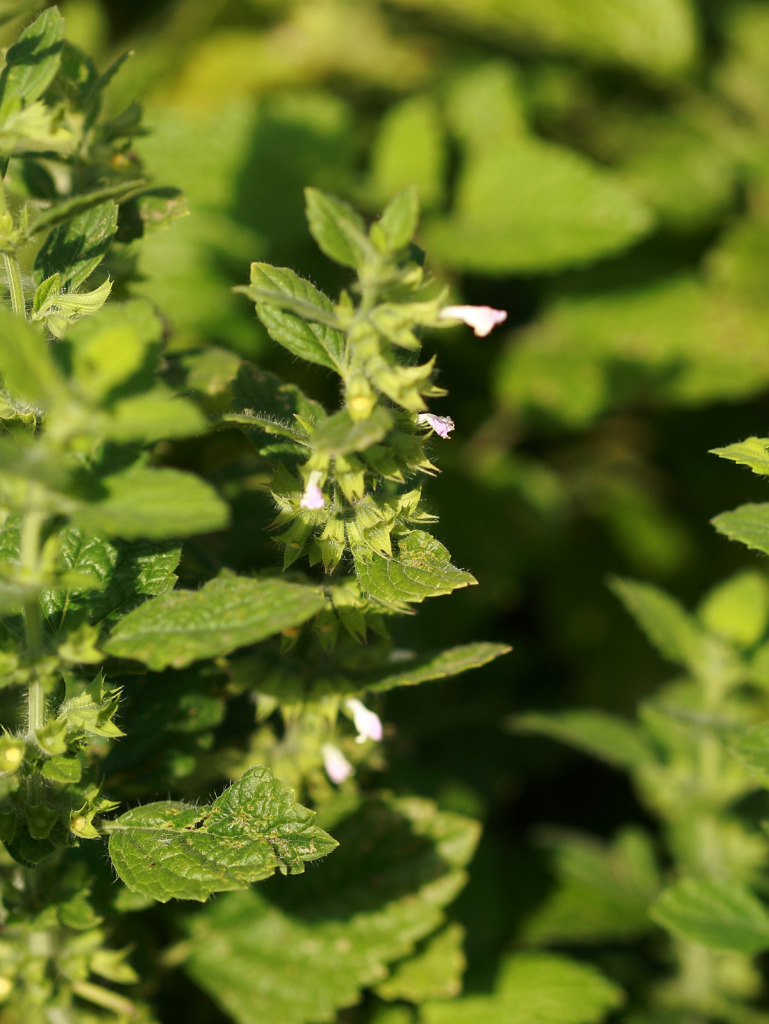
How to Identify Lemon Balm
Lemon balm, or Melissa officinalis, is a fragrant herb that’s a delightful addition to your garden and can work wonders in your herbal remedies. This medicinal plant, cherished since the Middle Ages, is not just a treat for your senses with its lemony scent, but also a versatile member of the mint family. But how do you spot lemon balm among other herbs in your garden? Let’s dive into the key features to help you identify it and make the most of its benefits.
Leaf Characteristics
The leaves of lemon balm are quite distinctive and a joy for any herbal enthusiast to recognize.
- Shape: Lemon balm leaves are heart-shaped, almost like they’re poised to share some love with your garden.
- Texture: They have a somewhat crinkly texture, with a rich green color that captures sunlight beautifully.
- Size: They range from small to medium in size, which makes them quite noticeable among other herbs.
Scent and Taste
This lemon-scented herb lives up to its name with an aroma that’s both refreshing and uplifting.
- Scent: Gently rub the leaves between your fingers, and you’ll release a fresh, citrusy fragrance that bees find irresistible.
- Taste: If you’re feeling adventurous, a tiny nibble will reveal a mild lemon flavor, perfect for teas and desserts.
Flowers and Growth
When in bloom, lemon balm showcases small white flowers that are subtle yet charming.
- Flowers: These blossoms aren’t just decorative; they’re a favorite for honey bees, adding life to your garden ecosystem.
- Growth Pattern: Lemon balm plants tend to be bushy and can grow up to two feet tall. Keep an eye on their spread, as they love to occupy any available space!
Habitat and Origin
Knowing where lemon balm thrives can help you decide if it’s the right fit for your garden.
- Natural Habitat: Originally hailing from Southern Europe and Central Asia, lemon balm is adaptable and can flourish in many environments.
- Garden Tips: As a preferred choice for home gardeners, it enjoys sunlight but doesn’t mind some shade. Ensuring good drainage will keep it happy.
Identifying lemon balm is just the start of discovering its wonderful uses. Whether you’re interested in making lemon balm tea or exploring its role in herbal teas, recognizing this herb allows you to tap into its rich history and myriad of benefits. So, if you’re planning to add a new herb to your collection, consider this calming, lemon-scented friend!
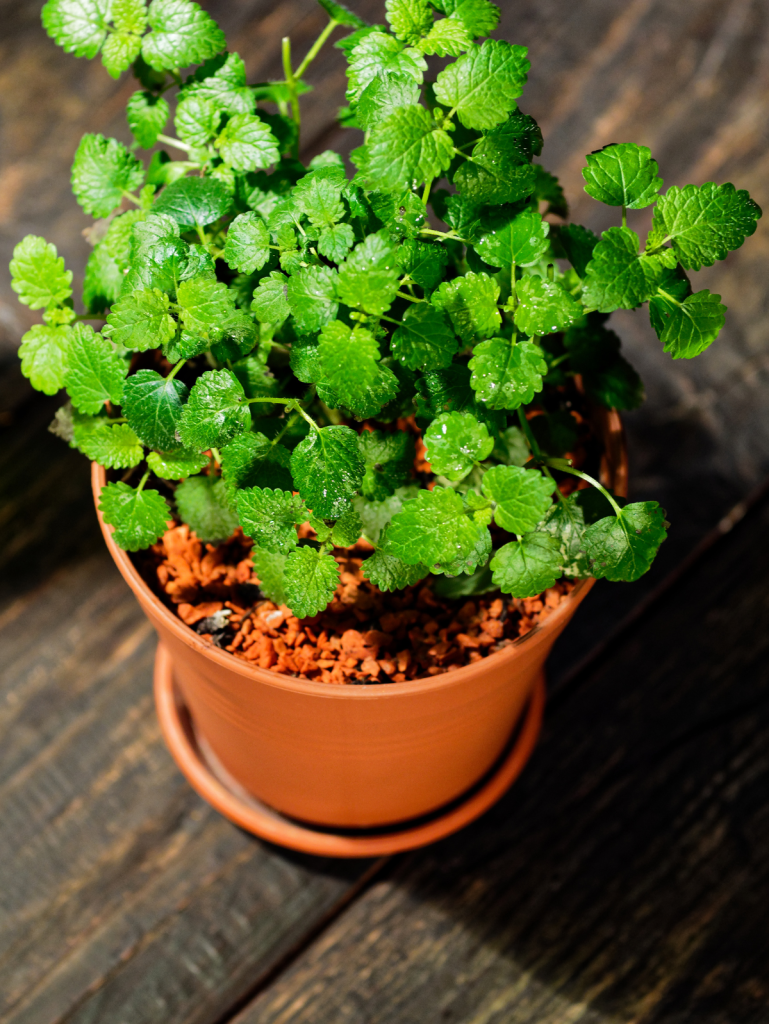
Lemon Balm Benefits for Hair
Lemon balm isn’t just for calming the mind or soothing cold sores—did you know it can also do wonders for your hair? Let’s dive into how this lemon-scented herb, hailing from Southern Europe and Central Asia, can contribute to your hair care routine with its nourishing properties.
Scalp Health and Dandruff Relief
Is your scalp often itchy or flaky? The antifungal properties in lemon balm might be your saving grace. Thanks to compounds like rosmarinic acid and phenolic compounds, this medicinal plant helps combat dandruff by targeting the fungi that can cause it. Imagine your scalp as a tiny ecosystem—just like a garden benefits from the right nutrients and care, so does your scalp. These elements help maintain balance, reducing dandruff and promoting healthier skin on your head. A peaceful scalp is a happy scalp, making you less self-conscious and more confident as you go about your day.
Promoting Hair Growth
Who doesn’t dream of strong, luscious locks? The antioxidants and vital nutrients found in lemon balm, like caffeic acid and other herbal extracts, nurture your hair from root to tip. Think of these nutrients as tiny building blocks, working tirelessly to strengthen your hair. When your hair is nourished, it grows with robust health and resilience. Just like plants need sunlight to thrive, your hair needs these powerful elements to reach its full potential. Incorporating lemon balm supplements or using lemon balm oil can be a natural way to boost your hair growth journey. And hey, who knew a little herb from the Middle Ages would still be helping us look good today?
Can Dogs Eat Lemon Balm?
Dogs are curious creatures, often sniffing around for something tasty or intriguing. As a pet owner, you might wonder whether lemon balm, that lemon-scented herb you love for its calming qualities in herbal teas, is safe for your furry friend. Let’s break down what you need to know about lemon balm and dogs.
Is Lemon Balm Safe for Dogs?
Yes, lemon balm is generally considered safe for dogs in small amounts. This member of the mint family is often used in herbal medicine for its calming properties and is a common ingredient in herbal remedies aimed at supporting the nervous system. It’s been around since the Middle Ages as a medicinal herb and contains essential oils that can help with anxiety and digestive systems in humans. But is it as beneficial for dogs?
Benefits for Dogs
Lemon balm can actually offer some benefits to dogs in moderation. Here are a few:
- Calming Effects: Much like in humans, lemon balm can have a calming effect on dogs, which might be useful during stressful situations like storms or trips to the vet.
- Digestive Aid: It’s known as a carminative herb, which means it can help soothe the digestive tract. If your dog occasionally suffers from mild abdominal pain or gas, lemon balm might help.
- Anti-inflammatory Properties: Lemon balm contains rosmarinic acid, which has been shown to help reduce inflammation.
How to Administer Lemon Balm
If you decide to offer lemon balm to your dog, it’s best to do so in a controlled manner. You can purchase it in the form of lemon balm supplements or make a homemade herbal preparation from dried leaves or fresh herb leaves. Always consult your veterinarian or a healthcare provider before introducing any new herbal product to your dog’s diet.
Potential Side Effects
While lemon balm is generally safe, it can cause adverse effects if your dog consumes too much lemon balm. Some possible side effects could include:
- Digestive Upset: Higher doses might lead to an upset stomach or diarrhea.
- Drowsiness: Since lemon balm is a calming herb, it may cause drowsiness in your pet.
As a general rule of thumb, start with a small amount and monitor your dog for any unusual behavior.
Consult with Your Vet
Before you incorporate lemon balm into your dog’s routine, talk to your veterinarian. They can provide tailored advice based on your pet’s health conditions, ensuring safety and efficacy. Remember, even though herbal remedies are natural, they can interact with other medications or affect health conditions adversely.
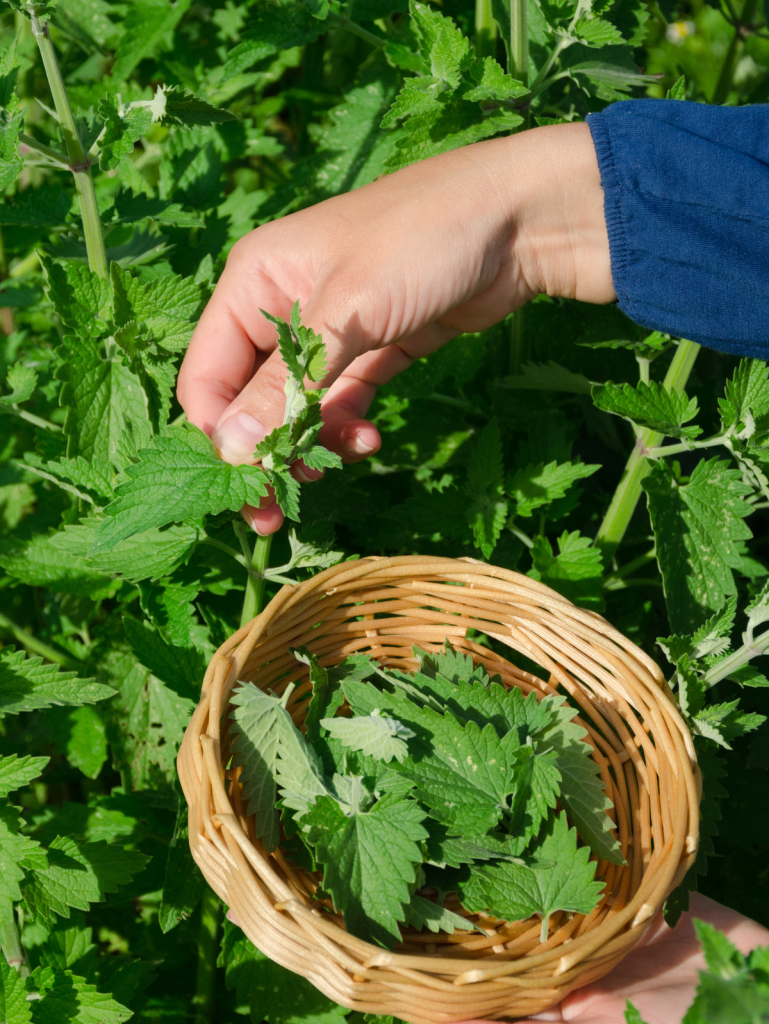
Ways to Use Lemon Balm
Lemon balm is a versatile herb known for its soothing scent and numerous health benefits. Whether you’re a seasoned home gardener or new to herbal remedies, lemon balm has something for everyone. From delicious recipes to homemade herbal remedies, learning how to make the most of this medicinal plant can transform your kitchen and medicine cabinet.
Culinary Uses
Lemon balm adds a delightful citrusy note to a variety of dishes, making it a favorite among cooks. Whether you’re adding it to a refreshing salad or using it to elevate a traditional dish, lemon balm’s ability to enhance flavor is undeniable. Here are some tasty ways to incorporate it into your meals:
- Fruit Salads: Toss chopped lemon balm leaves into a fruit salad. It pairs perfectly with strawberries, watermelon, and cantaloupe.
- Fish Dishes: Use lemon balm as a garnish on fish dishes. Its subtle citrus flavor complements both seafood and poultry.
- Lemon Balm Tea: Steep fresh or dried leaves in hot water for a soothing herbal tea that aids digestive systems and promotes relaxation.
- Ice Cream: Blend lemon balm with your favorite ice cream recipe for a unique twist. The fresh herb infuses a light, citrusy flavor that pairs well with vanilla or honey-based ice creams.
Feeling adventurous? Try experimenting with lemon balm in carmelite water, a historical preparation with origins in Southern Europe, known for its calming properties.
Herbal Remedies
Lemon balm is more than just a culinary delight. Its leaves have been used in herbal medicine for centuries, thanks to its rich content of rosmarinic and caffeic acids. This calming herb is ideal for soothing stress, promoting sleep quality, and providing relief from symptoms associated with PMS and the herpes simplex virus. Here’s how you can use lemon balm in different herbal preparations:
- Infusions and Teas: Simply steep lemon balm leaves to create a relaxing tea that can help calm the nervous system and improve cognitive function.
- Tinctures: Prepare a tincture by soaking lemon balm in alcohol, creating a concentrated herbal product that can be added to water or other beverages as a digestive aid.
- Essential Oils: Lemon balm oil is a popular choice for aromatherapy, helping to alleviate stress and promote mental health. Note that lemon balm essential oil should be used with caution and ideally under the guidance of a healthcare provider to avoid any adverse effects.
- Lemon Balm for cold sore salve: A topical remedy to soothe cold sores, thanks to its antiviral properties. It can also be applied to the affected area to minimize the symptoms of herpes simplex.
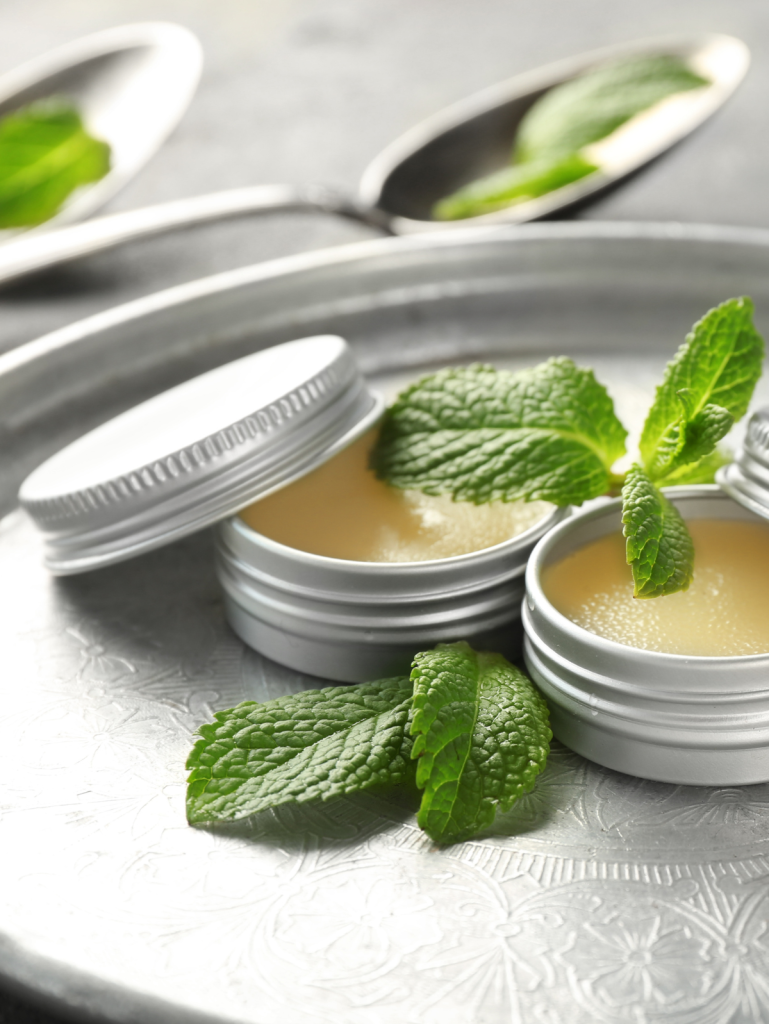
Before diving into these herbal remedies, remember to consult with a healthcare provider or herbal medicine expert to ensure the safe use of lemon balm, especially if you are using it in higher doses or as a supplement. With the right preparation, lemon balm can be a wonderful addition to your alternative medicine toolkit.
Health Benefits of Lemon Balm Tea
Lemon balm tea, packed with vibrant flavor and soothing properties, is more than just a delicious drink. This member of the mint family, known scientifically as Melissa officinalis, has been treasured since the Middle Ages for its healing benefits. Let’s explore the amazing qualities this lemon-scented herb offers in promoting better mental and physical health.
Anxiety and Stress Relief
Feeling jittery or overwhelmed? You’re not alone. Many of us are turning to herbal remedies like lemon balm tea to calm our nervous systems. Research has backed this up, showing that lemon balm’s ability to reduce anxiety is not just hype. Clinical trials have demonstrated lemon balm’s calming effects, helping to soothe frazzled nerves by possibly influencing blood pressure and heart rate.
A cup of this calming herb may act like a gentle hug for the brain, easing symptoms of anxiety without the adverse effects seen in some pharmaceutical options. So, the next time stress comes knocking, consider reaching for a warm cup of lemon balm tea.
Digestive Health
Our digestive systems are like complex machines, and lemon balm tea can be the helper that keeps everything running smoothly. This carminative herb aids in easing tummy troubles like abdominal pain and bloating. It’s believed to work by encouraging the production of digestive enzymes, making it a go-to for those seeking natural digestive aids.
Packed with rosmarinic acid and other phenolic compounds, lemon balm tea is cherished by many herbal medicine enthusiasts for reducing gastrointestinal discomfort. Whether you’re dealing with a full-on stomach ache or just a little extra gas after dinner, lemon balm could be your ticket to relief.
Improved Sleep Quality
Having trouble catching those Z’s? Lemon balm might be the natural sleep aid you’ve been dreaming of! Studies have shown its potential to enhance sleep quality and reduce insomnia symptoms.
This herb has been a staple in traditional medicine for centuries, offering a gentle nudge toward a restful night’s sleep. By potentially interacting with GABA receptors in the brain, lemon balm can act as a natural sedative, helping to lull you into a peaceful slumber. Next time you’re stuck counting sheep, try swapping them for a steamy mug of lemon balm tea before bed.
With its rich history as a medicinal plant, lemon balm is gaining renewed interest among health seekers. Drinking lemon balm tea can be an easy and delicious way to explore its benefits. Whether you’re using dried leaves from your garden or purchasing a herbal product from the store, lemon balm tea might just become your new favorite nighttime ritual.
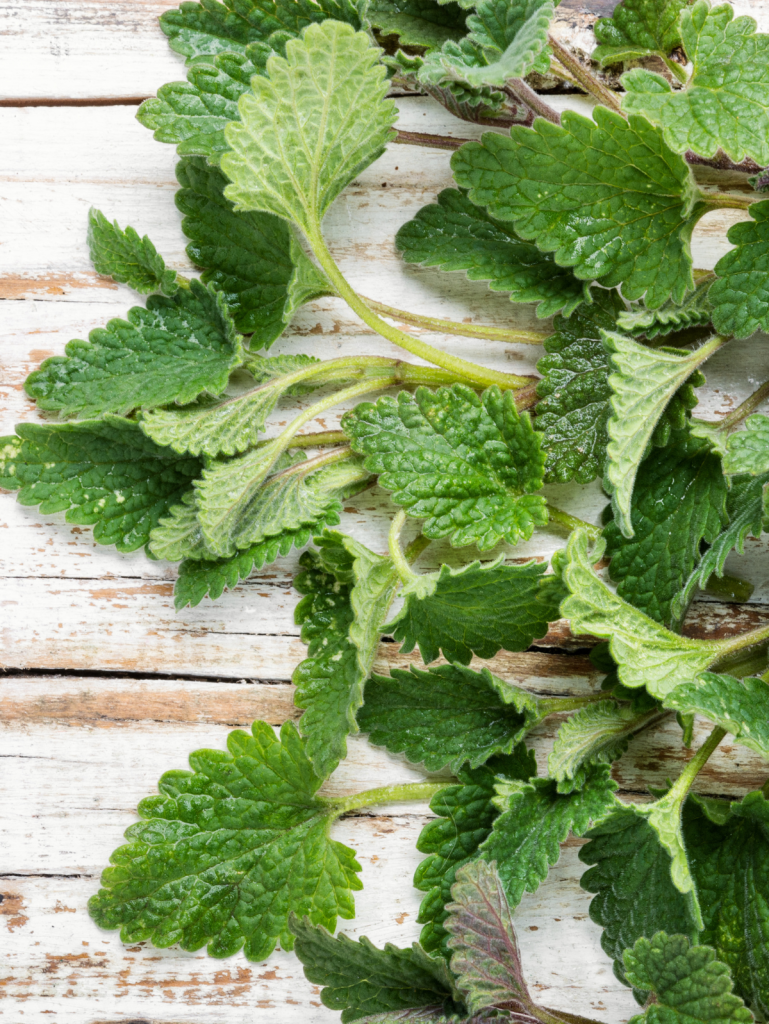



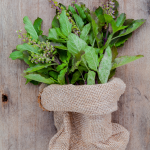
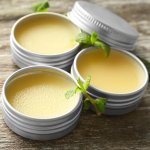

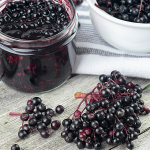
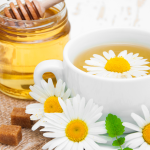


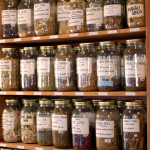
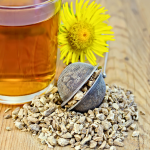

Leave a Reply